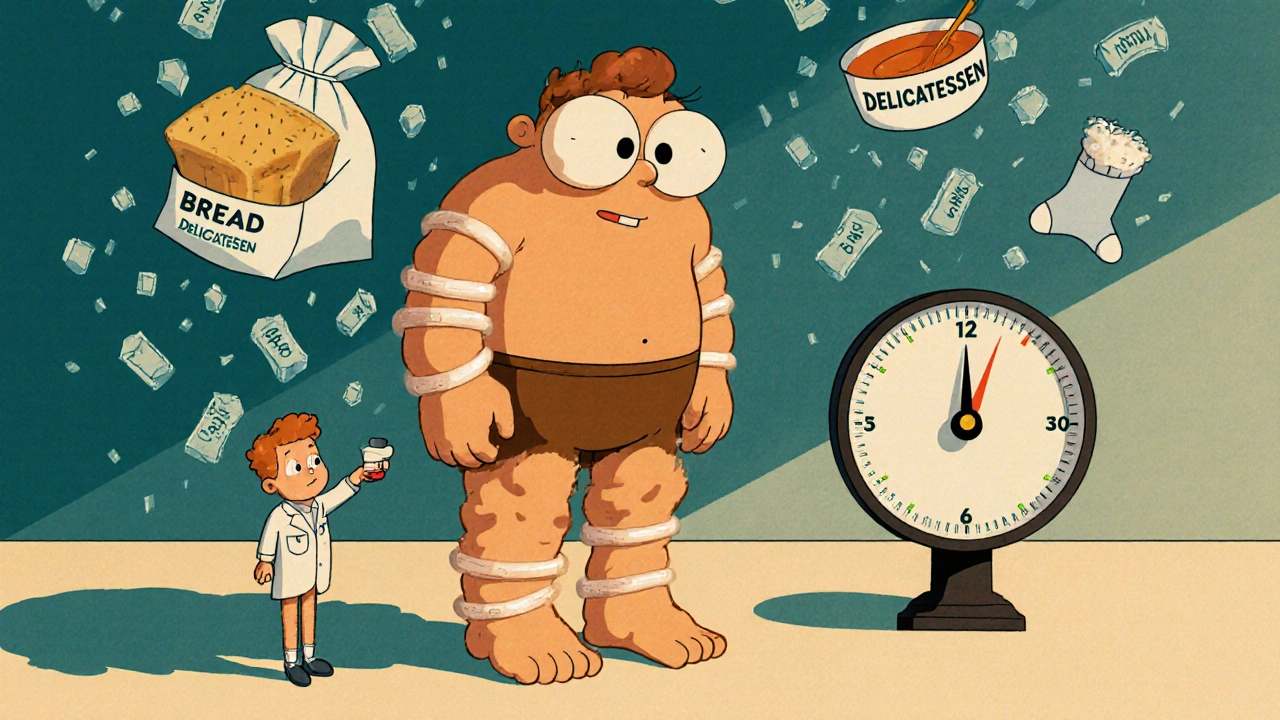Chronic Kidney Disease Fluid Retention: Causes, Risks, and What You Can Do
When your kidneys can’t filter waste and extra fluid properly, chronic kidney disease, a long-term condition where kidney function slowly declines leads to fluid retention, the buildup of excess fluid in tissues. This isn’t just puffiness in your ankles—it’s a warning your kidneys are struggling. Fluid builds up because damaged kidneys can’t remove sodium and water the way they should, and that extra fluid pulls into your legs, lungs, and even around your heart. If left unchecked, it can raise your blood pressure, strain your heart, and make breathing difficult.
Fluid retention in chronic kidney disease often shows up as edema, swelling caused by fluid trapped in the body’s tissues, especially in the feet, ankles, and hands. You might notice your rings don’t fit, your shoes feel tight, or your face looks puffy in the morning. Weight gain overnight isn’t just from eating too much—it’s from fluid. Some people also feel short of breath, even when resting, because fluid leaks into the lungs. This is why doctors track weight daily and check for swelling during appointments. It’s not just about comfort—it’s about preventing heart failure or fluid overload.
Not all fluid retention is from kidney problems, but when you have chronic kidney disease, it’s a red flag. Certain medications like NSAIDs, some blood pressure drugs, and even diabetes treatments can make it worse. That’s why diuretics, medications that help the body get rid of extra fluid through urine are often part of the treatment plan. But they’re not a fix-all. The real goal is to manage sodium intake, control blood pressure, and protect remaining kidney function. Cutting back on salt, avoiding processed foods, and monitoring fluid intake aren’t suggestions—they’re medical necessities.
What you’ll find below are real, practical posts that break down how fluid retention connects to kidney damage, which drugs help or hurt, how to spot warning signs early, and what steps actually make a difference in daily life. No fluff. Just clear info on how to handle this common but serious complication of chronic kidney disease.
Edema in CKD: How Diuretics, Salt Restriction, and Compression Therapy Work Together
Edema in chronic kidney disease is caused by fluid buildup due to impaired kidney function. Learn how diuretics, strict salt restriction, and compression therapy work together to manage swelling safely and effectively.






